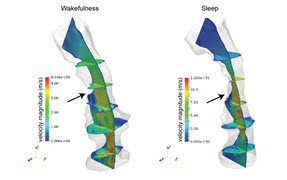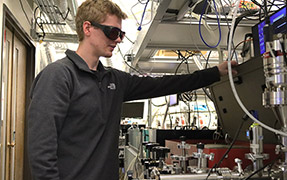SPIE offers Child Care Grants
SPIE has created a grant to give parents equal opportunity to attend its largest annual meeting.
When Jacinda Ardern was elected as New Zealand's prime minister in 2017, she became that country's youngest prime minister in the last 150 years, and just one of three women to ever hold the post. What also sets her apart, is she is only the second sitting head of government to give birth while in office -- Pakistan's Benazir Bhutto was the first.
When she was 3 months old, Ardern's daughter Neve was said at the time to be the youngest person to ever attend the United Nations General Assembly in New York City.
"I have the ability to take my child to work, there's not many places you can do that, said Ardern in a September interview with The Guardian. " I am not the gold standard for bringing up a child in this current environment because there are things about my circumstances that are not the same."
As many parents of young children well know, it can be difficult to carry on with normal life outside the home while also caring for those children. Traveling to meetings or conferences can present challenges. As part of SPIE's commitment to family-inclusive support, the Society has created a grant to give parents equal opportunity to share their research at Photonics West -- its largest annual meeting.
Good help is hard to find
In 2015, SPIE formed the Gender Equity Task Force (GETF) to identify how the professional environment and culture of the optics and photonics (O+P) industry could be improved so that O+P professionals are offered opportunities, rewards, and recognition independent of gender. The GETF developed a Strategic Plan and Feasibility Study, which together outlined recommendations of what the Society should do (Strategic Plan) and how the Society should it (Feasibility Study).
One of the principal recommendations from the GETF was "Enhance Content for Individuals." This proposal acknowledged that most of SPIE's existing efforts in gender equity have focused on engaging and empowering individual members and advocates. While the GETF recommended these efforts be continued, they would benefit from review, enhancement, and revision. One specific new tool for promoting individual gender equity education and empowerment identified in the Feasibility Study was childcare grants.
"Participation in scientific conferences is widely acknowledged to be essential to STEM career development," says Julia Craven, an engineer/scientist at Sandia Labs and member of the task force. "The GETF results support broader STEM findings that primary caregiving responsibilities are assumed by women more often than by men. For primary caregivers, traveling to conferences, even when employers cover employee costs, is often difficult. Childcare grants covering expenses to bring care providers to conferences or hire local childcare will enable more primary caregivers to participate in SPIE conferences."
Craven adds that such grants will directly benefit members of the O+P community with young children by enabling them to remain engaged in conferences, an essential component of professional development.
Filling a need
When Katie Schwertz, design engineer at Edmund Optics and GETF member, posted about the childcare grants on LinkedIn, one of the first persons who commented was a colleague of hers from graduate school who said she skipped quite a few conferences when she was in school because she couldn't afford childcare during those conferences. "I'm positive she's one of many in the same situation," says Schwertz. "Who knows what kind of connections, experiences, or opportunities she missed out on by not attending?
Schwertz points out that conferences are a primary source of networking opportunities and information sharing within the industry. Lowering barriers for women to participate can only have positive effects, both for the individual and for the larger optics community.
"I think as a whole, blatant sexism in our industry has mostly (and mercifully) gone by the wayside," Schwertz adds. "But there are still a host of less obvious ways in which women are treated inequitably, and much of childcare in society today still rests on women's shoulders. Grants and efforts like these are just one way in which we can start creating a more equitable environment in optics and photonics."
Michelle Povinelli, an associate professor at University of Southern California, is one of many who are happy to hear about this grant.
"It is vitally important for researchers with young children to be able to participate in the scientific community," says Povinelli. "For junior faculty on the tenure track in particular, there is an urgent need to promote and share results at conferences. This early-career period often coincides with the birth of young children. This grant will help ensure that parents can continue to travel to conferences during a vital period in their career development."
The deadline for the Photonics West Child Care Grant is 01 January, 2019.
Other outcomes of the GETF recommendations are new professional development workshops at Photonics West and Optics + Photonics.
| Enjoy this article? Get similar news in your inbox |
|




